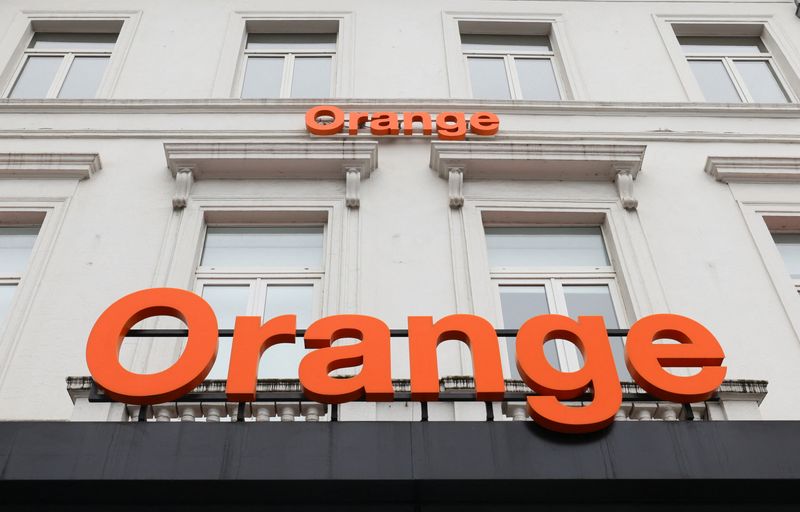By Foo Yun Chee and Tassilo Hummel
BRUSSELS (Reuters) -Orange and MasMovil's planned merger of their Spanish operations may reduce competition and push up prices, EU antitrust regulators warned on Tuesday, indicating the telecoms operators may need to offer significant remedies to get the deal approved.
Orange, the second largest telecoms provider in Spain, and fourth-ranked MasMovil announced the deal in July 2022 and said it was based on an enterprise value of 18.6 billion euros ($20.3 billion).
The tie-up is seen as a test case for whether the European Commission will ease its tough line on mergers that reduce the number of big mobile telecoms operators in a market to three from four.
The EU competition enforcer on Tuesday reiterated its worries about such four to three mergers as it sent a statement of objections to the companies setting out its concerns. Orange and MasMovil compete with two other mobile network operators in Spain, Telefonica (NYSE:TEF) and Vodafone (NASDAQ:VOD).
"The Commission is concerned that the proposed transaction may reduce the number of network operators in Spain, thereby eliminating a significant competitive constraint and innovative rival in the Spanish retail markets for mobile telecommunications services, fixed internet services and multiple-play bundles," the EU executive said.
It said retail customers may also face significant price increases resulting from the merger.
"Predicted anticompetitive effects are substantial even after taking potential cost savings into account, in a context where competition has been a driving force for investment and quality of services in the Spanish market," the Commission said.

Orange said it would continue to explain to the Commission the benefits of the deal for consumers and businesses, among them more innovative services and more investments in 5G and fibre optics in Spain.
The companies can ask for a closed hearing to defend their case before the EU enforcer decides on the deal by Sept. 4.